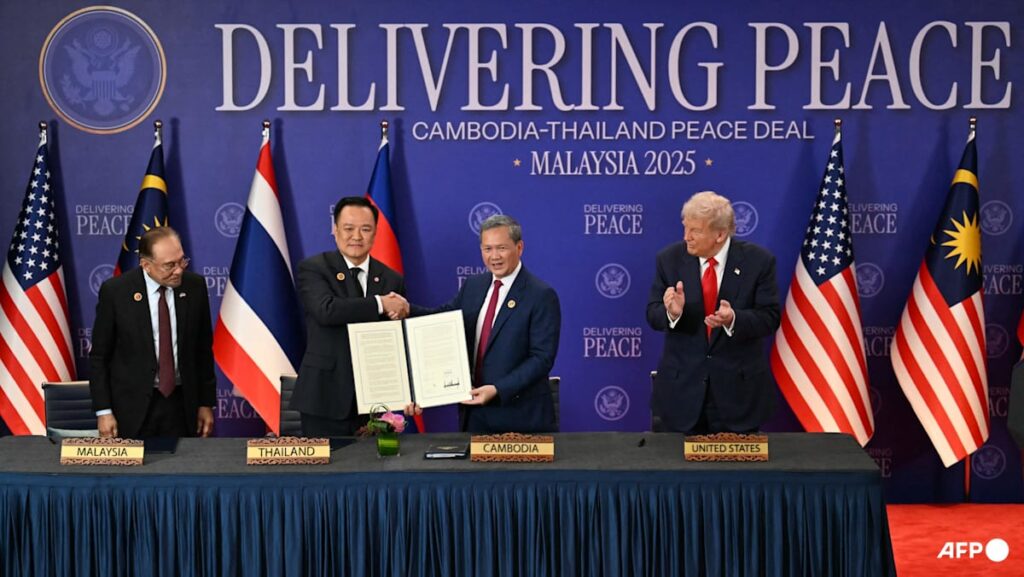A Thai government spokesperson also specified that Cambodia’s BM-21 multiple rocket launchers – which Thailand alleges were used in late July to target Thai civilian locations – should be withdrawn.
All these indicate that Thailand is prepared to de-escalate. But two major outcomes – release of detained Cambodian soldiers and the reopening of borders which have been shut since late June – will largely depend on its perception of how satisfactorily Cambodia fulfils its end of the bargain.
WILL THE DEAL HOLD?
Still, economic imperatives will likely persuade both governments to uphold the deal.
Both countries at the summit signed trade-related agreements intended to address the US administration’s grievances and mitigate the risk of fresh, elevated tariffs. The US is both countries’ top export market. In particular, the Thai economy is facing significant challenges and Thai politicians of all stripes are eager to usher in signs of economic revival to boost their political standing.
Nevertheless, several factors could risk re-escalating the conflict.
The first is the next Thai general election, which is expected by March or April 2026. Mr Anutin has pledged to dissolve parliament by January 2026.
Although he and his Bhumjaithai party stand a good chance of returning to power, Mr Anutin will need to resist the temptation to exploit the border dispute on nationalistic grounds to strengthen his party’s electoral prospects. Additionally, it remains uncertain whether he can or is willing to rein in the military, which has been making public statements about forcibly taking over disputed areas.
https://www.channelnewsasia.com/commentary/thailand-cambodia-peace-deal-scam-centre-asean-trump-5434891


